A $210k Home In Panama’s Premier Retirement Haven
In the lush highlands of Western Panama lies the small town of Boquete, one of the world’s top retirement destinations....
Top Destinations:
Whether you’re looking for fun and sun, a peaceful retirement, or the chance to earn some extra income, you’ve got a real world of opportunity open to you… In short, we’ve done our best to narrow down your best options, but only you can decide the right country for you.
Best For:
How Much Will It Cost You To Live Overseas?
The only honest answer is, we have no idea. And neither does anyone else. The only one who can answer that question is you. Here’s the most important thing to understand about budgeting your new life overseas…
Follow Us:
Upcoming Events
Live and Invest In Spain Conference
Offshore Wealth Summit
Greece Workshop
VALENCIA, SPAIN
Sep. 17-19, 2025
PANAMA CITY, PANAMA
Oct. 15-17, 2025
VIRTUAL
Nov. 13, 2025
Contact Our Events Team
Reach us with your questions by email at: events@liveandinvestoverseas.com
Unlock The World
Overseas Havens Reports
Conference Kits
Lahardan Books
Our Customer Service team is here to assist with any questions or concerns CustomerService@LiveandInvestOverseas.com
Top Destinations:
Whether you’re looking for fun and sun, a peaceful retirement, or the chance to earn some extra income, you’ve got a real world of opportunity open to you… In short, we’ve done our best to narrow down your best options, but only you can decide the right country for you.
Best For:
How Much Will It Cost You To Live Overseas?
The only honest answer is, we have no idea. And neither does anyone else. The only one who can answer that question is you. Here’s the most important thing to understand about budgeting your new life overseas…
Follow Us:
Upcoming Events
Live and Invest In Spain Conference
Offshore Wealth Summit
Greece Workshop
VALENCIA, SPAIN
Sep. 17-19, 2025
PANAMA CITY, PANAMA
Oct. 15-17, 2025
VIRTUAL
Nov. 13, 2025
Contact Our Events Team
Reach us with your questions by email at: events@liveandinvestoverseas.com
Unlock The World
Overseas Havens Reports
Conference Kits
Lahardan Books
Our Customer Service team is here to assist with any questions or concerns CustomerService@LiveandInvestOverseas.com
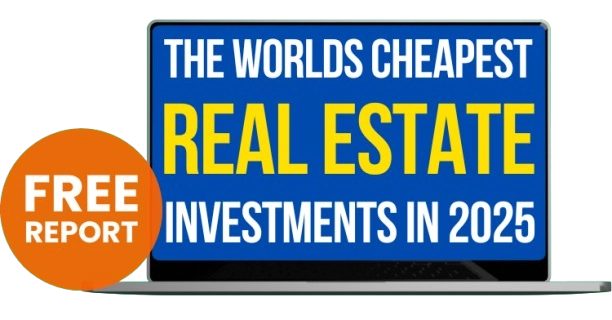
We Value Your Privacy! We will not share your email address with anyone else, period.
Home » Best Countries To Live, Invest, And Retire Overseas » Panama : Everything You Need To Know In 2025 » Panama Real Estate
Expert advice and information covering everything you need to know about Panama's real estate market. How and where to buy property and more.
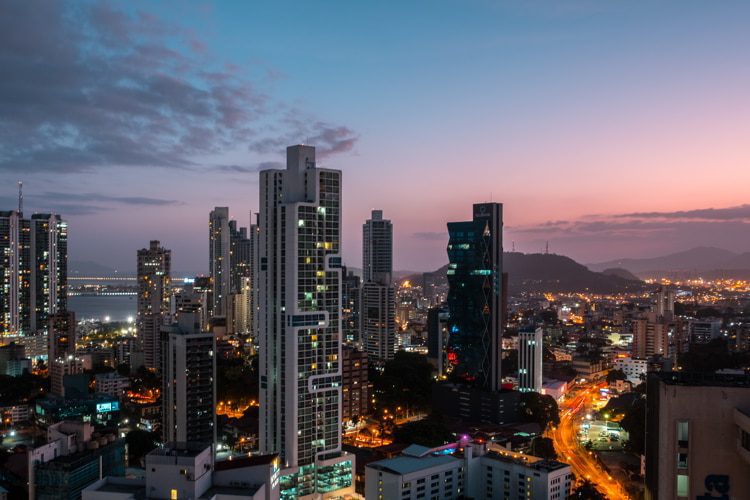
Right now, you can find great deals on foreclosed properties in Panama City, with big chunks of equity in the buy from those units, either through a developer or the bank.
Most importantly, there are huge infrastructure projects on Panama’s horizon that target tourism…
One is the new cruise ship terminal that has capacity for around 7,000 passengers; another is the new conference center with capacity for 20,000 people…
They say that these projects are going to triple tourism within the next couple of years… which would pad out the already robust rental market nicely.

Reviewed By Kathleen Peddicord
Kathleen is the Live and Invest Overseas Founding Publisher. She has more than 30 years of hands-on experience traveling, living, and buying property around the world.

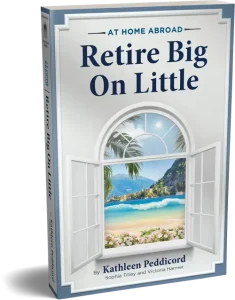
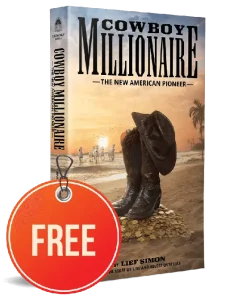
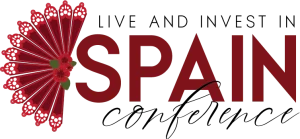
Experience The World’s #1 Retirement Haven
Sept. 17-19, 2025
Valencia, Spain
Start Your New Overseas Life Today
We Value Your Privacy! We will not share your email address with anyone else, period.
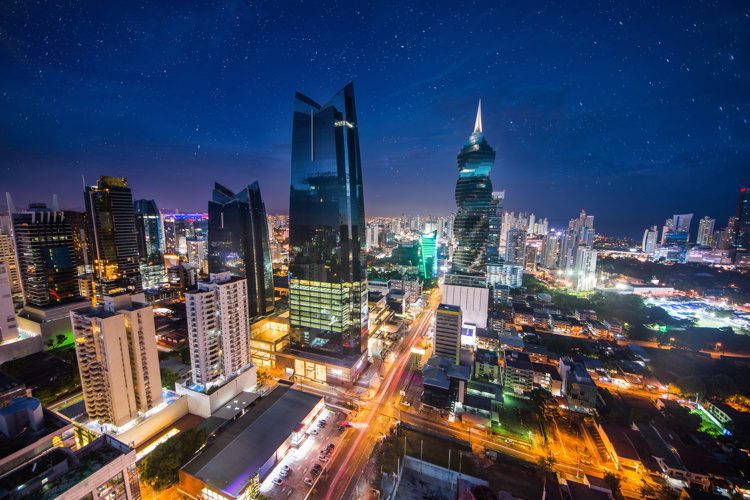
If you have decided to buy property in Panama then do plenty of research. This means seeing different areas of Panama to find out where you would most like to live.
View as many houses as possible and try to get an idea of what prices are like. Once you have enough data you can start to work out the price per square meter which is the most useful guide to how much a property should cost.
The process of buying a house in Panama usually takes around 5-8 weeks assuming everything runs smoothly. Always use a trusted lawyer and get them to look over all the documents. Once you have come to an agreement on price, but before you sign anything, make these checks.
The first check you need to make is the person selling to you is the legal owner. If they are the legal owner then they will have a Title to the property confirming ownership. If the seller cannot provide this you can ask for the finica number. With this, your lawyer can search for the title.
You also need to obtain the certificado de registro from the public registry. This will confirm any liens against the property.
You should get the property surveyed as well. This should be done by a licensed surveyor and will confirm the dimensions of the property you will buy.
If the property you want to buy is a Rights of Possession (ROP) property the situation is slightly different. In these cases, the Panamanian government owns the title to the land.
This is often the case for land in rural Panama. Buying this land comes with certain stipulations such as spending a certain amount of time on the land each year. ROP is a complex area and we recommend seeking out a specialist if you want to buy ROP owned land. This article will deal with titled lands only.
Once you are satisfied the property being sold is above board, you will be asked to put a deposit down on the property and sign a pre-sales agreement. 10% is the standard amount requested for the down payment.
The pre contract is legally binding and covers all details of the sales transaction. If either party pulls out of the deal financial compensation will be required. The contract will be in Spanish and you will need an approved translator to make you a copy in English.
The first thing to consider when buying a titled property is your responsibility to pay property tax. This is an annual tax and you don’t get a reminder. It is on you to remember to pay each year
The Panamanian government takes 2% of sale value for a Title Tax. Usually, the seller pays the property transfer tax but it is not mandatory. Be sure to ask the seller.
Purchases under $30,000 are exempt from property tax. Property transfer is also 2% of the sale value. Capital Gains Tax is either 3% of the sales value or 10% of the gain. You will pay the lower amount of these.
More on Taxes in Panama
The transfer of the title comes before payment, it is essential to make sure everything is above board. The Notary Public will deal with everything including typing up the new title with the buyer’s name on the property details. The buyer and seller both sign the new Title contract and then money is exchanged.
If you choose to pay in cash make sure the Notary is there to act as a witness. This is an accepted way of doing business. If you want to send money by a check or wire transfer. Have the Notary witness the transaction. You may like to use a lawyer to transfer the money. If you have trust in your lawyer this is an option. Another option is to set up an Escrow Account although not everyone in Panama is familiar with this process. After this, you register your property at the public registry. This last step completes the process of buying real estate in Panama.
Unlike many, Panama’s real estate market did not collapse in the wake of the 2008 meltdown. Its economy also remained strong. Panama Canal revenues have surged, continuing to keep this country cash comfortable.
In addition, Panama is enjoying growth in both its financial services and tourism sectors and has established itself as a top tourist shopping destination.
But if you come to purchase real estate in Panama leave all your ideas of how to buy behind and bring your wits with you. Remember, this is a different world, with a different legal system and one sometimes fraught with fraud and con men.
The worst of the con men speak excellent English and will help you purchase things at attractive prices… things which may not even exist. Do not expect the legal system in Panama to help you; once your money is gone it is gone.
Start by investigating the whole area you are interested in. Speak to real estate people—all of them. Panama has no multiple listing service (MLS) and everyone and their sister sells real estate, but most are not licensed. If they are not licensed then there can be no accountability if things go wrong. Panama real estate is also allowed to have net listings, which means prices may vary on the same property from office to office.
This is often a big surprises for North Americans, who are accustomed to walking into a real estate agent’s office, detailing the specs for what they seek (two bedrooms, 2 ½ baths, US$200,000, in a popular school district, for example), then sitting back to watch as the agent types those details into his system to generate a series of listing sheets for every property currently available to suit.
In Panama, to get an idea of what’s available for sale anywhere in the country, you must meet with as many real estate agents operating in the area as possible. Not only do they not share listings, neither do they share commissions. Property listings are proprietary.
However, a particular piece of real estate might be listed with more than one agent. But this is not because the agents are sharing listings. It’s because the seller has listed the property separately, agent to agent, often at differing prices.
ROP or Right of Possession is where a person or family has effectively homesteaded land/property in Panama. They have a right to possess it, and they can legally transfer the right, but the owner is the government.
The issue is who has the right and who else in the family, or even a neighbor, is going to also claim the same right. If you buy the property can you obtain title? It is a risky business proposition. The government has a program to title ROP land, they want it all titled because titled land pays taxes, ROP land does not.
Titled land is registered at the Registro Publico, the public registry of Panama. All legal liens against titled property are also in this database. Before you do anything regarding property you should find an attorney, not the same attorney as the seller, and have them research the property. If you are fluent in Spanish you can do this part yourself.
All titled land is taxed in Panama, except for land under condominiums, there’s no exemption. To help keep land values below the taxable threshold many sellers transfer the property to a corporation and then sell the corporation. The value of the corporation might increase but the land value does not.
Many parcels of titled land are corporate property. People sell the corporation, not the land. This device avoids revaluation of the property to market value.
People have gone through the entire process of acquisition only to discover a lien was on file. Any legal lien must be recorded in the Registro Publico, another reason for having complete research done by a lawyer.
This one seems obvious but once again it’s not uncommon to hear of people who have bought property here based on the word of another expat; big mistake. Do not purchase anything before your lawyer carries out an investigation of title.
Untitled land must be owned by a Panamanian for at least two years before it can be owned by a foreigner. After this period it can be titled and resold. Foreigners cannot own within 10 kilometers of international borders.
All Panamanian beaches and waters are public land and cannot be bought or sold. Foreigners cannot own within 10 meters of the Atlantic Ocean or within 22 meters of the Pacific Ocean (from the high-tide line).
Special permits are needed in cases of some types of waterfront construction. Rights of possession are common in some parts of Panama. While this is not the same as title, it can be converted to title in some cases. So, to do this, you need the help of an attorney familiar with the process.
Another charge is a 2% property title transfer tax. The 2% is calculated from the price the purchase price. In addition, you must pay a 3% capital gains tax to be paid.
In Panama, the seller is usually responsible for paying the both of these taxes although be sure to get clarification beforehand. Closing costs are usually around 2% of the purchase price and both the buyer and seller will each be expected to pay their own costs.
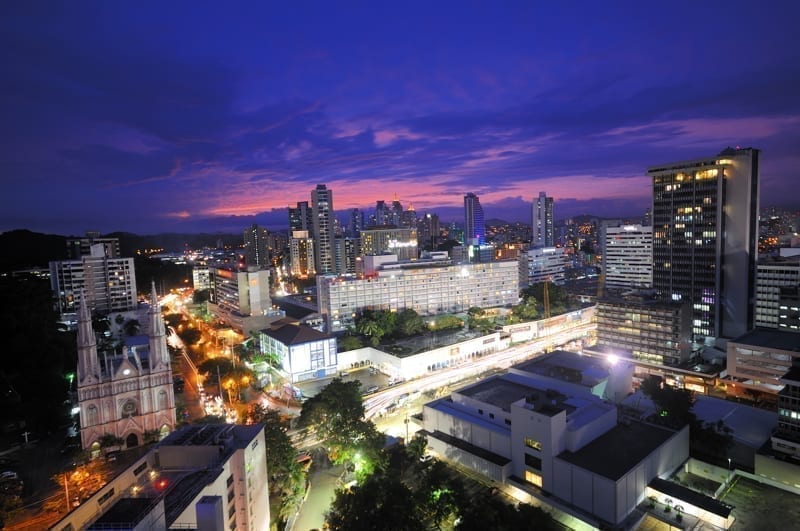
Panama City is a diverse area and property prices vary considerably. One thing is constant. Prices have been steadily increasing over the past decade.
El Cangrejo is a comfortable, middle of the road destination ideal for expats. Here you have all the benefits of city living, restaurants, bars shops, public transport links etc. but without the price tag of some areas. El Cangrejo also offer plenty of different places to rent in.
Monthly Budget For Living (renting) in El Cangrejo: US$ 2,115 and if you own real estate $1,500
The market is saturated in some areas of Panama City… there’s more inventory than there are renters.
But you can do really well here if you can find a niche market.
One of the niches where I’m seeing super-high occupancy is short-term rentals, because, other than a few exceptions, short-term rentals (of less than 45 days) are illegal in Panama.
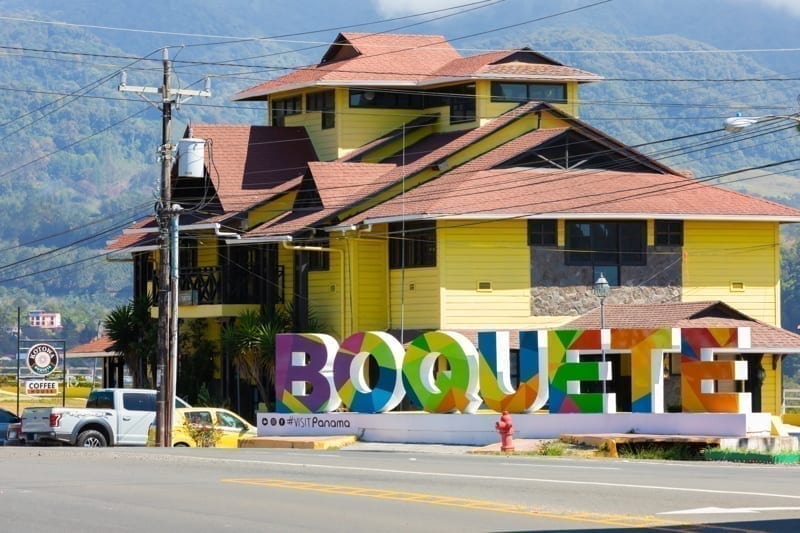
Boquete is a district in the West of Panama. It is the mountainous part of Panama and Panama´s most famous expat location. Most Panamanians in this area speak at least a little English and some are completely bilingual. Real Estate in Boquete is the second highest in Panama. Due to the number of expats who move here most find they can sell their property easily if they need to.
Monthly Budget For Living In Boquete: Renting will cost US$1,800 if you own real estate $1,300
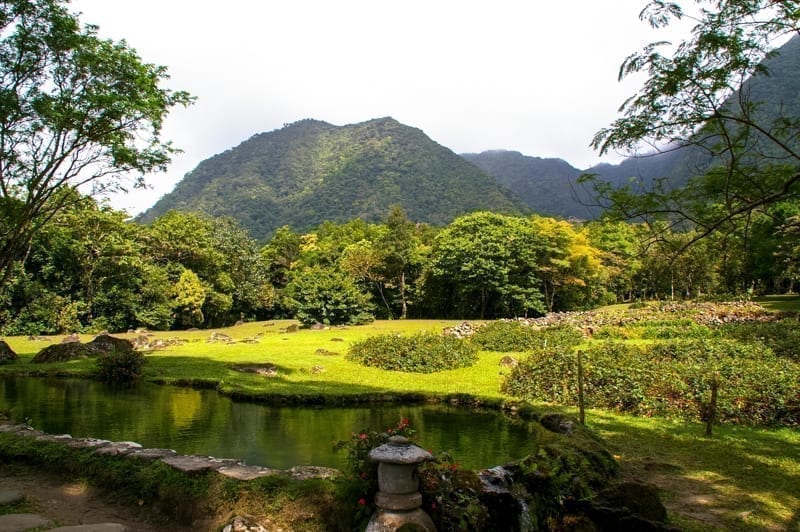
El Valle De Anton is located near to an extinct volcano, about 90 minutes’ drive from Panama City. The region is cool and quiet with an abundance of plants and butterflies. The way of life is based on markets and fresh local produce. The prices for local produce are a world away from what you will pay in Panama City.
Providing you have a car, El Valle De Anton is close enough to Coronado and also Panama City for you to have relatively easy access to amenities.
Monthly Budget For Living in El Valle: Renting, US$1,550 and if you own real estate $1,000
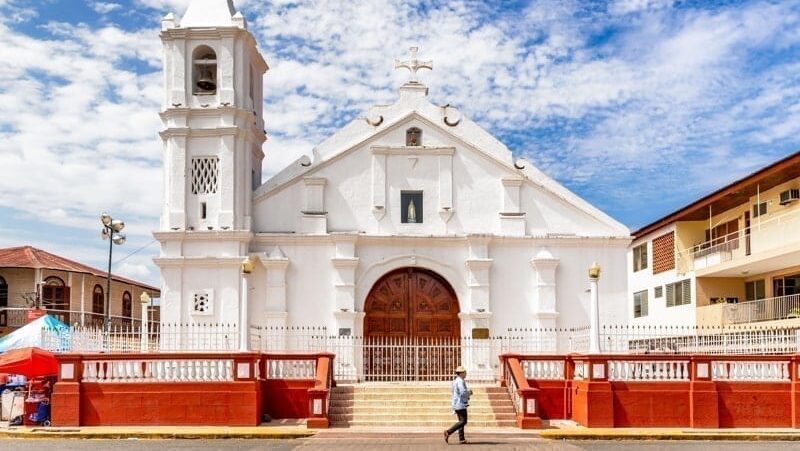
For many, Las Tablas is famous for being home to the biggest Carnival in Panama. However, the Carnival experience does not give a reflection of what life is like here for the rest of the year. Las Tablas is about a 3 hour drive from Panama City and has some of the best beaches on the West Coast of Panama. Real Estate here is far cheaper than other along the coast near to Panama City and Las Tablas has a thriving community with an established way of life.
Las Tablas has become popular with retirees and wealthy Panamanians looking to get away from the more crowded city beach areas.
Monthly Budget For Living in Las Tablas: Renting, US$1,1150 and if you own real estate $900
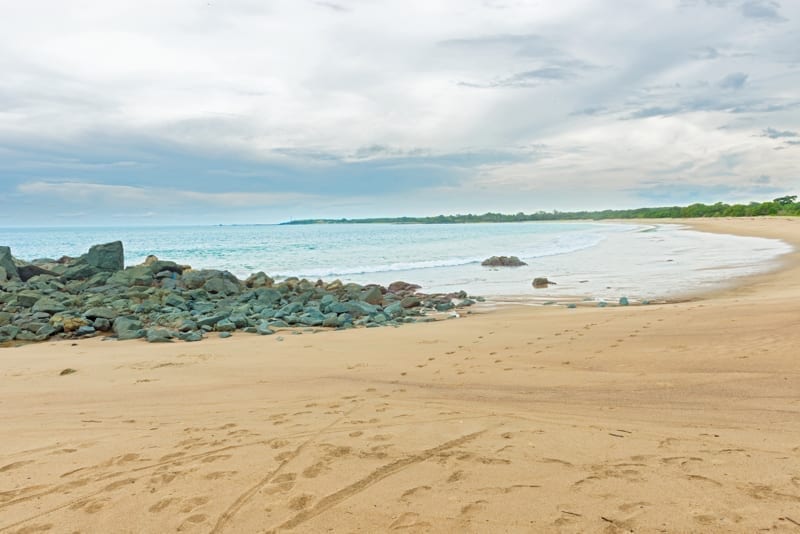
Located on the South East tip of the Azuero Peninsula, Pedasi has some of the best beaches on Panama’s Pacific coast. The center is a village with a sleepy pace of life. Pedasi is famous for having some of the best surfing and fishing in Panama. It’s out of the way location means it is not overrun with tourists but expat numbers are steadily growing. Price of real estate and cost of living here are both low which makes it an appealing destination.
Pedasi is the to live if you are looking for authentic Panama and somewhere away from the hectic pace of city life.
Monthly Budget For Living In Pedasi: Renting, US$1,400 and if you own real estate $1,050
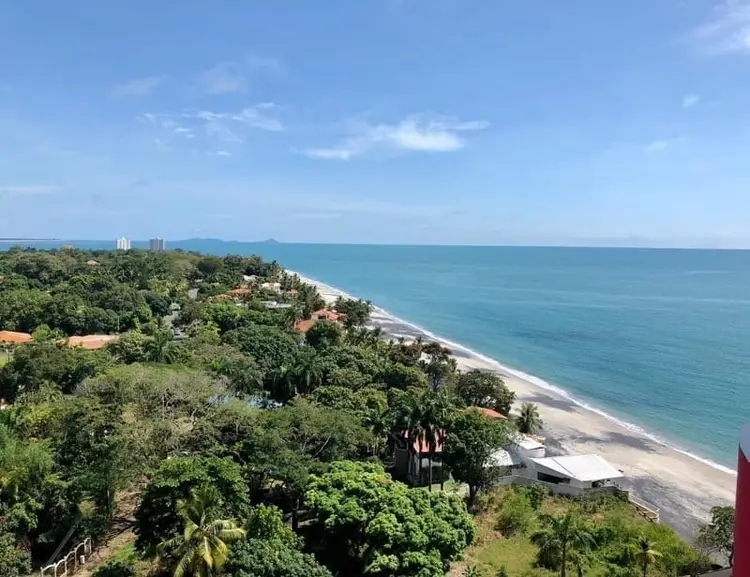
The Panama City Beaches Area of Panama is about an hour away from Panama City and was the first area in Panama specifically designed for tourists. A strong infrastructure is in place here with everything an expat could want. Coronado is equally popular with expats and local Panamanians so you will always feel connected to the local culture. If you choose to purchase real estate here beware you may need a 4×4 vehicle for some of the locations. Coronado is designated as a private community and the government are not responsible for road maintenance. As a result, some parts of Coronado are almost impossible to access with a standard car.
Monthly Budget For Living In Coronado: Renting US$2,500 and if own you real estate $1,200
Renting in Panama is easier than in a lot of other Central American locations. Regulations are in place to protect the renter and providing you get a valid contract you should be okay. An attorney will be able to check the validity of a contract.
Alternatively, try and work with a reputable company, if possible one recommended by a friend.
The contract normally entitles you to leave with 1 months’ notice to your landlord. If the landlord asks for more, you might want to keep searching. You also have the right to get your security deposit back assuming the property is in the required condition.
Although the rental industry is not as well developed here as in the U.S. it is a growing industry. You can find properties to rent on the internet and though real estate companies.
Private individuals rent through Airbnb and other sites such as gumtree. Above all, don’t put any money down for a property you haven’t seen or hand over any cash without getting a receipt.
Also, take photos of any existing damage to the building or furniture. This is for security in case the landlord tries to unlawfully keep your security deposit.
It is worth remembering most properties you are looking to rent in Panama will not have hot water. If you are living in a more isolated area you will also need to make sure the property you rent has a reserve water tank.
Low pressure at the end of the dry season can affect your ability to obtain water in these areas, sometimes for days at a time. Be sure to check the air-conditioning is working when you view the rental property. If you are in the higher areas of Panama this won’t be important but for a lot of the country, air-conditioning is a must.

Reviewed By Kathleen Peddicord
Kathleen is the Live and Invest Overseas Founding Publisher. She has more than 30 years of hands-on experience traveling, living, and buying property around the world.




Experience The World’s #1 Retirement Haven
Sept. 17-19, 2025
Valencia, Spain
Start Your New Overseas Life Today
We Value Your Privacy! We will not share your email address with anyone else, period.
It is easy to buy property in Panama. Foreigners enjoy the same rights as Panamanian citizens when it comes to property.
Also, the country has several laws aimed at protecting foreign investors. Furthermore, Panama’s constitution guarantees the protection of private property and its owners.
In the lush highlands of Western Panama lies the small town of Boquete, one of the world’s top retirement destinations....
Living in Panama: Panama is a land of mesmerizing natural beauty, vibrant folklore and traditions, and a diversity of lifestyle...
Why were Lief and I drawn to Panama in the first place... more than 25 years ago... and how have...
Gary and Elva Bittner have taken the world by storm. Or at least by plane, sailboat, and car. Elva is...


We Value Your Privacy! We will not share your email address with anyone else, period.
As seen in

© 2008 – Live and Invest Overseas™ – All Rights Reserved.
Top Countries
Budgets
Affordable
Resources
Real Estate
Overseas Property Alert
How To Become Independently Wealthy And Fund The Lifestyle Of Your Dreams
Buying Real Estate For Cashflow
Discover tips and strategies used by global property investing veterans
Explore Our Latest Posts
Learn how to invest and purchase property abroad…
Conferences
Live and Invest In Spain Conference
Offshore Wealth Summit
GREECE WORKSHOP
Contact Our Events Team:
Toll-Free U.S. and Canada:
1 (888) 627 8834
From Outside North America:
1 (443) 599 1221
Working Hours
Monday – Friday 08:00 am – 17:00 pm EST.
Reach us with your questions by email at: events@liveandinvestoverseas.com
Store
Overseas Havens Reports
Conference Kits
Lahardan Books
Services
Free Report
THE 10 BEST PLACES TO RETIRE IN 2025

Sign up to receive the FREE daily e-letter, Overseas Opportunity Letter and we’ll immediately email you our editors’ latest research report…
We Value Your Privacy! We will not share your email address with anyone else, period.
Follow Us:
© 2008 - Live and Invest Overseas - All Rights Reserved.
RETIRE OVERSEAS AND LIVE LIKE ROYALTY
Sign up for FREE to learn how. Plus, check out our FREE report on THE 10 BEST PLACES TO RETIRE
RETIRE OVERSEAS AND LIVE LIKE ROYALTY
Sign up for FREE and learn how to live the good life on a modest budget, find bargain property, and more. Plus, check out our free report on the 10 BEST PLACES TO RETIRE.
We Value Your Privacy! We will not share your email address with anyone else, period.